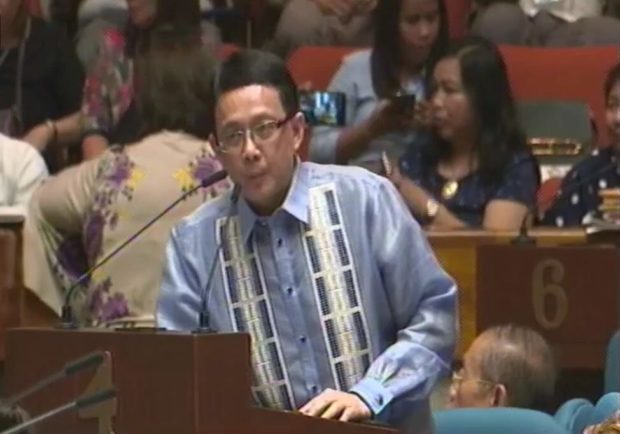Rep. Daza: Constituent assembly ‘more practical’ if House wants Cha-cha

Northern Samar Rep. Paul Daza. (INQUIRER.net file photo)
MANILA, Philippines — Using a constituent assembly (Con-ass) to amend the 1987 Constitution, where members of Congress will be tapped to form a body that would make changes to the basic law, would allow the government to save funds, Northern Samar 1st District Rep. Paul Daza said.
Daza in a statement on Tuesday said that using the other mode of amending the Constitution, like a constitutional convention (Con-con), will cost the country around P10 billion to P15 billion, which can be spent instead for public services.
Proposals for Charter change (Cha-cha) like the Resolution of Both Houses (RBH) No. 6 and the unnumbered bill, that if enacted would be RBH No. 6’s implementing law, gave preference to a constitutional convention. This means an election of delegates would be held, which requires a lot of funds.
“Unlike a Convention, which is costlier and could take one to two years, an Assembly can be done in a month or so. The House can also limit the Con-Ass to affect the economic provisions only of the Constitution. I think that’s where amendments are most needed,” Daza, who voted against the unnumbered bill, said.
“The substantial cost involved in a Constitutional Convention can cost P10-Billion to P15-Billion. These funds could be better spent on critical socio-economic programs such as for poverty alleviation, social welfare, education, and employment and livelihood generation,” he added.
Daza also feared that amending the Constitution via Con-con would only be divisive.
Under the Con-con mode being pushed by the House, legislative districts will send a delegate who would be picked through an election. However, the House also used the proposal of former chief justice Reynato Puno, where the body would be a hybrid system having both elected and appointed delegates to ensure that political families would not dominate the Con-con.
Puno made the suggestion during a previous hearing of the House Committee on constitutional amendments.
READ: Ex-Chief Justice Puno suggests ‘hybrid constitutional convention’
“Finally, the process of choosing the representative-delegates to this Con-Con may become another opportunity for divisiveness. While I appreciate the good intentions, a potentially divisive and costly exercise at this point may do more harm than good,” Daza noted.
However, he maintains that he supports proposals to amend the 1987 Constitution based on the need to do away with restrictive economic provisions which prevent the inflow of foreign direct investments.
“My preference toward a Con-Ass is anchored on my belief that the Philippines has remained rigidly restrictive when it comes to foreign direct investment up to this day mainly because of the provisions of the 1987 Philippine Constitution. In fact, our country perennially ranked third out of 84 countries in the Organization for Economic Cooperation and Development’s (OECD) list of most FDI-restrictive states,” Daza said.
“Sadly, the OECD’s checklist almost sounds like a record of the Philippine situation: foreign equity limitations, discriminatory screening or approval mechanisms, restrictions on the employment of foreigners as key personnel, and other operational restrictions, such as those on branching and capital repatriation or land ownership by foreign-owned enterprises,” he added.
On Tuesday, the House approved on second reading RBH No. 6, despite stiff opposition from minority lawmakers. Prior to that, the committee approved a committee report on an unnumbered substitute bill which outlines how charter change advocated by RBH No. 6 would be implemented. With reports from Mae Anne Bilolo, trainee
RELATED STORIES:
House rejects Lagman’s bid to suspend Con-con deliberation
Resolution on constitutional convention passes House 2nd reading